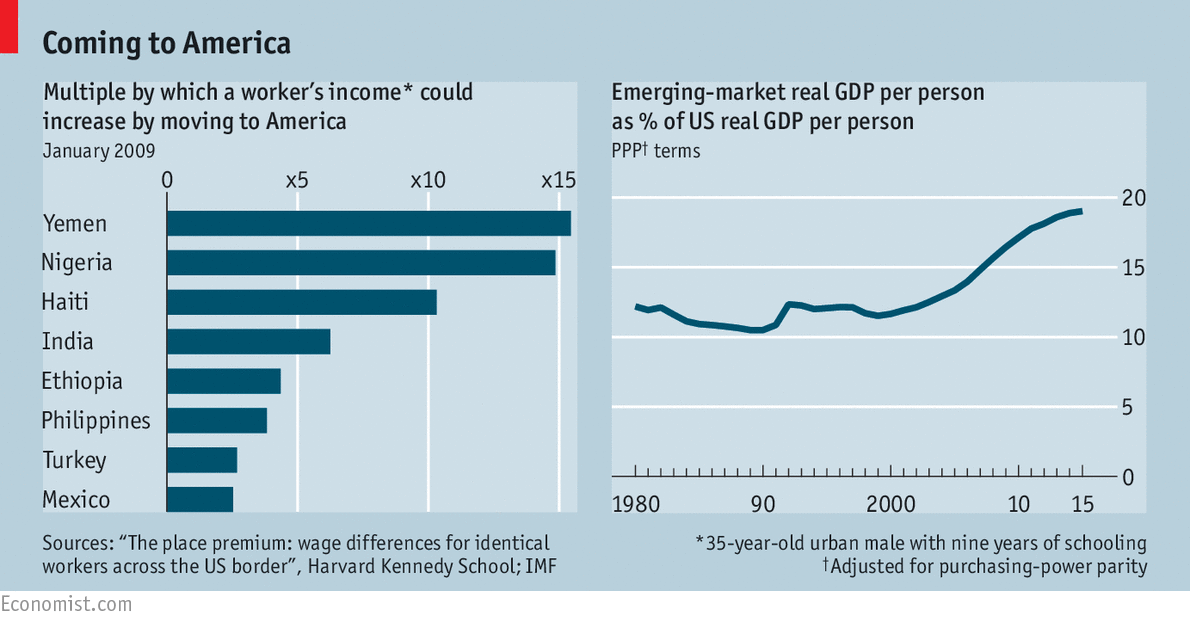- Joined
- Dec 13, 2015
- Messages
- 9,594
- Reaction score
- 2,072
- Location
- France
- Gender
- Male
- Political Leaning
- Centrist
From the Economist, here - Free Exchange, The best policy

In a word, making sure that countries like Haiti do the necessary footwork (and helping them to do so with the fundamental investments necessary) to provide the institutions (as mentioned above) to better their ability to do other than menial jobs, there is not much that will ever be done. Meaning that they are consigning their population to everlasting poverty ...
No matter how hard a Haitian worker labours, he cannot create around him the institutions, infrastructure and skilled population within which American workers do their jobs. By moving, he gains access to all that at a stroke, which massively boosts the value of his work, whether he is a software engineer or a plumber. Defenders of open borders reckon that restrictions on migration represent a “trillion dollar bills left on the pavement”: a missed opportunity to raise the output of hundreds of millions of people, and, in so doing, to boost their quality of life.
We shall come over; they shall be moved
On what grounds do immigration opponents justify obstructing this happy outcome? Some suppose it would be better for poor countries to become rich themselves. Perhaps so. But achieving rich-world incomes is the exception rather than the rule. The unusual rapid expansion of emerging economies over the past two decades is unlikely to be repeated. Growth in China and in global supply chains—the engines of the emerging-world miracle—is decelerating; so, too, is catch-up to American income levels (see chart). The falling cost of automating manufacturing work is also undermining the role of industry in development. The result is “premature deindustrialisation”, a phenomenon identified by Dani Rodrik, an economist, in which the role of industry in emerging markets peaks at progressively lower levels of income over time. However desirable economic development is, insisting upon it as the way forward traps billions in poverty.

In a word, making sure that countries like Haiti do the necessary footwork (and helping them to do so with the fundamental investments necessary) to provide the institutions (as mentioned above) to better their ability to do other than menial jobs, there is not much that will ever be done. Meaning that they are consigning their population to everlasting poverty ...

